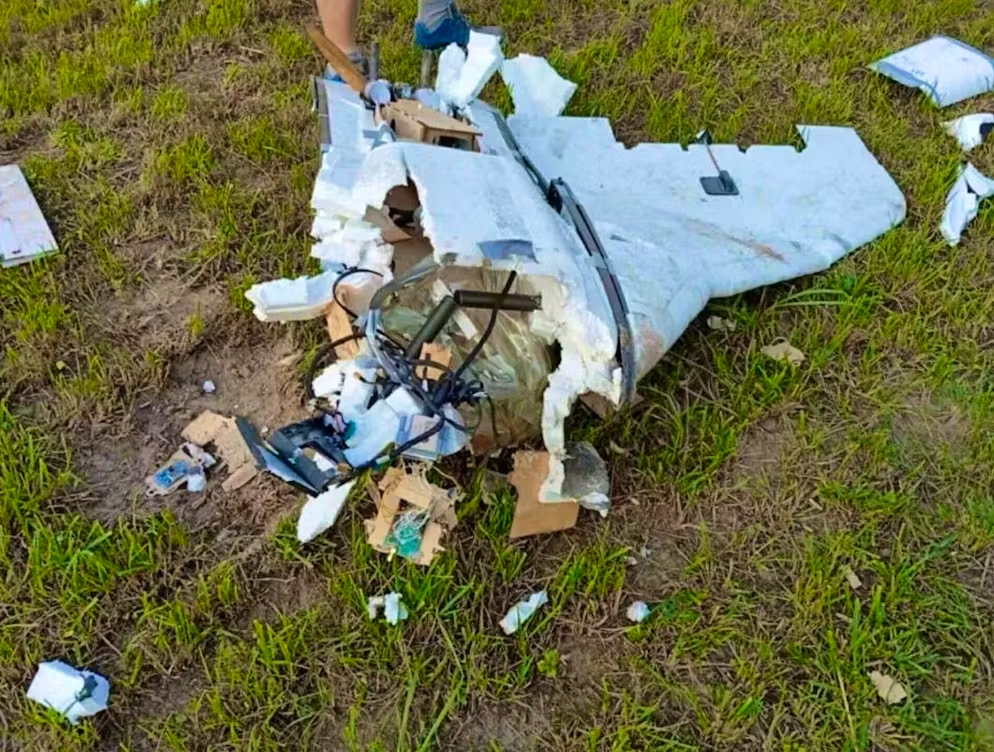On the night of Sept. 9, more than 19 drones were detected entering Polish airspace. Between the hours of 11:30 p.m. and 6:30 a.m. Central European Standard Time, Polish, Dutch and other NATO fighter jets were scrambled to intercept the incoming drones with at least four drones being confirmed shot down. The Polish Foreign Minister later thanked the Dutch government for their assistance and cooperation during the ordeal. This intercept of Russian drones marked the first instance of a NATO country taking fire during the Russo-Ukraine war.
The origins of the drones have yet to be fully confirmed, however the Polish government has stated that some of the drones came from Belarus. The initial question was why the drones were so far off target and where was their actual target supposed to be. Moscow immediately denied responsibility and claimed its drones had carried out an attack on military facilities in Western Ukraine, but were not planned to strike targets in Poland. Additionally, Belarusian Maj. Gen. Pavel Muraveiko distanced his country and the incursion by stating online that Russia and Ukraine traded drone strikes overnight while Belarusian forces warned Polish and Lithuanian forces about “unidentified aircraft” approaching their territory.
The response to the attack was Poland invoking Article 4 of the NATO treaty which is generally the starting point for major NATO operations. Article 4 has been invoked nine times, all of which took place within the 21st century, with four of those times as a result of Russian aggression. Following the attack, the Prime Minister of Poland made a statement commenting on the fact that Poland was the closest to open conflict since World War II. Additionally, the leaders of France, Britain, Germany and Canada were among some of the leaders to condemn the suspected Russian attack. Following these developments, many nations have pledged support to Poland by promising military aid or sending units into Poland to directly assist Polish forces in case of further Russian incursions.
Some Western military analysts suspect that this was just a probe to test NATO responses and find weaknesses in current protocols. However, this does not just affect Poland, but rather all NATO countries, especially those that are close to or bordering Russia. Due to Russian aggression within the past decade, many Eastern European and NATO countries have been strengthening their armies to deter and prepare for a potential conventional war with Russia.
As a result, many countries are increasing GDP spending on military related expenses. Notably in Poland’s case, they have almost doubled their GDP spending on military related assets in just the past 5 years, likely as a direct result of Russian aggression. On top of that, historically, Poland has been stuck in the middle of aggressive neighbors who have routinely attacked the country for varying reasons. An important historical note is that Poland has been occupied for the majority of the past 300 years. In order to prevent aggression from neighboring countries or enduring occupation once again, they have likely decided not to rely completely on promises of protection from their allies and rather be ready to defend their borders from any potential threats independently. This is probably for the best considering the last time Poland relied on foreign aid to help them was during World War II, where nations like Great Britain and France promised to intervene in a war if Poland was attacked. However, Poland was hung out to dry due to a clause in a treaty signed with Britain and France and was subsequently occupied by two authoritarian regimes for the next 50 years.
Just 10 days after the breach of Polish airspace, Estonia also invoked Article 4 as a result of Russian fighter jets violating its airspace. It is clear that tensions are escalating rapidly in Eastern Europe, leaving experts and analysts with questions on the motives of these actions. What exactly are the Russians trying to do with these breaches? Are these inflammatory actions simply to empower Russian influence in the region? The most important being, is President Putin willing or trying to start a conventional war with NATO? This last question is most concerning as shortly after the Russo-Ukraine war began, Putin warned of nuclear retaliation against any NATO strikes or incursions. But with tensions escalating not only in Eastern Europe, who is to say what exactly will happen. We can only hope that leaders come to their senses and prevent another catastrophic loss of human life for almost nothing in return.
Russian Drone Strike in Poland
0




